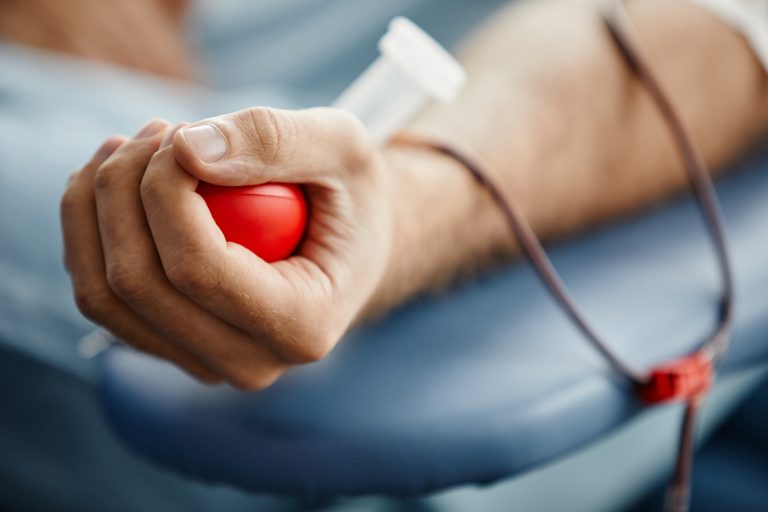A new decree of the Czech Ministry of Health has lifted the ban on homosexual men donating blood. As of 1 July, all those who have engaged in risky sexual practices are excluded from blood donation, regardless of gender or sexual orientation.
This includes those who have had anal intercourse with a new sexual partner or multiple partners in the last four months, or provided sex in exchange for money or drugs.
The ministry stated on its website that these changes were designed in cooperation with the Society for Transfusion Medicine, and based on internationally accepted recommendations.
Although the blood of donors is tested for HIV, until now, men who have sex with men (MSMs) have been excluded from donating blood if they have had sex in the last six months. Until 2019 this rule applied for the previous 12 months. Minority rights initiatives have long considered this discriminatory. The ministry previously defended the measure on the grounds that sex between men carried a higher risk of acquiring HIV infection.
Blood donors will still have to fill in a questionnaire before donation, in which they will indicate any issues that would prevent them donating blood temporarily or permanently. These include illnesses such as hepatitis or tuberculosis, chronic diseases such as high blood pressure, or a recent heart attack.
“Reasons for exclusion include travel to certain high-risk countries, tattoos, or an attached tick,” the ministry said, adding that the safety of the recipients of donated blood would therefore continue to be assured.
According to the Czech Red Cross, approximately 220,000 people donate blood in the Czech Republic, with about 30,000 new donations every year. According to experts, at least 300,000 regular donors would be needed to adequately supply hospitals with blood, and about 5,000 more new donors per year would be needed to cover the decline in donor numbers due to age or disease.
Blood from donors is used for blood transfusions, or to prepare special treatments or medicines. For example, blood plasma helps patients with immunity or blood clotting disorders, and blood transfusions are given to people during surgery or bleeding in the digestive tract, during childbirth, or to treat neonatal jaundice. The drawing of blood takes about ten minutes, and about 450 millilitres are taken. Donation is not paid, but donors are entitled to time off work on the day of the donation, and other bonuses are also offered by health insurance companies.







